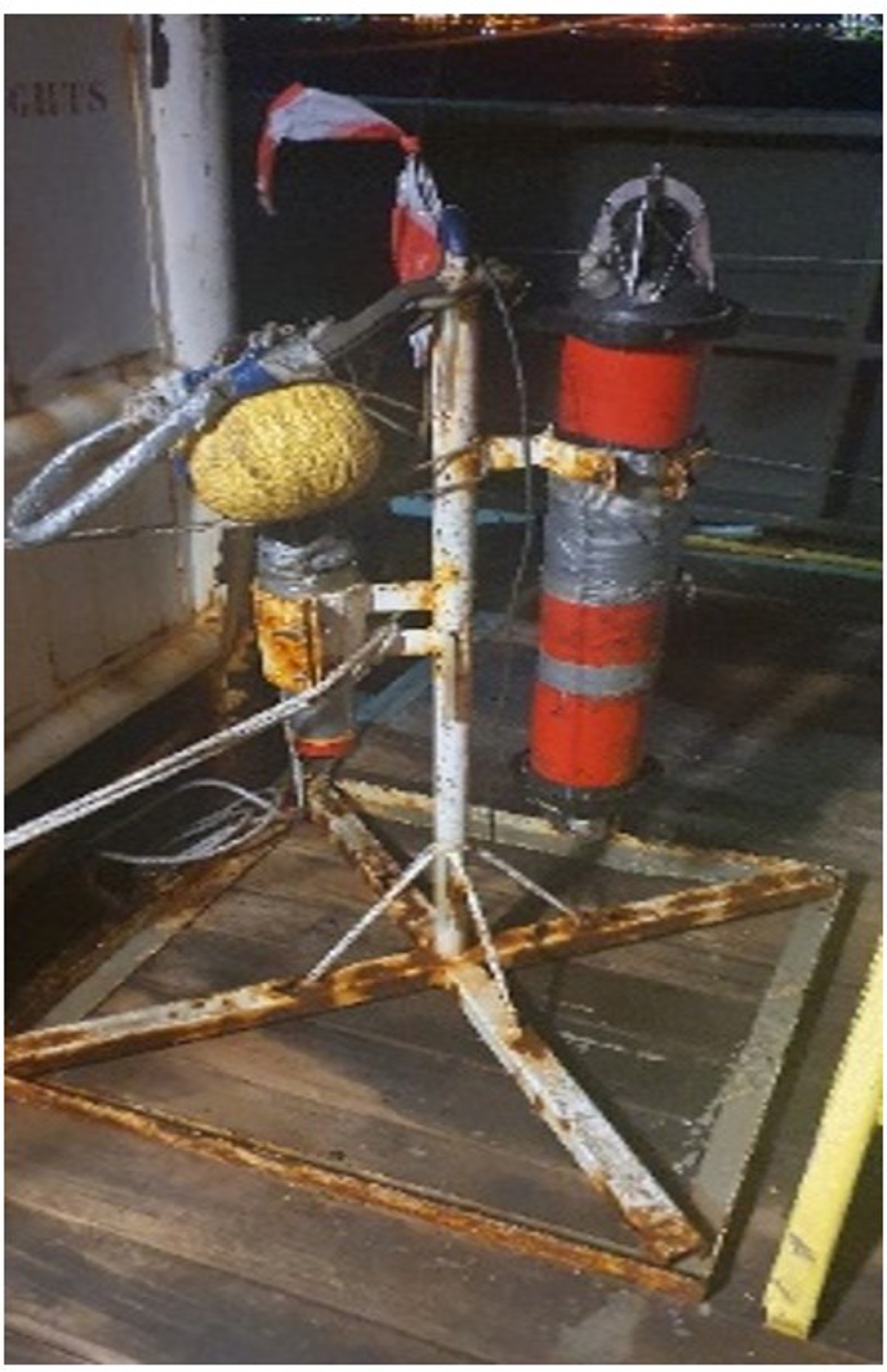Subsea transponder wire parted
- Safety Flash
- Published on 21 April 2022
- Generated on 10 February 2026
- IMCA SF 10/22
- 1 minute read
Jump to:
A tripod positioning transponder wire parted from the tripod framework.
What happened?
A tripod positioning transponder wire parted from the tripod framework whilst the vessel was repositioning and needed to re-plumb the transponder. No assets were close by at time of incident. Whilst coming up on the winch it was noticed that there was no weight on the wire; on recovery to the surface it was discovered that the 4mm diameter wire had parted approximately 1m from the tripod lifting eye. The lost tripod was subsequently recovered to deck by divers and the crane.

What went wrong?
The equipment failure was caused by excessive wear and tear on equipment; the wire was corroded and was not replaced frequently enough.
Actions
- Replaced the damaged wire and conducted a performance test prior to use.
- Regular visual inspection prior to launch and during recovery now conducted.
- Replacement of the spool wire every 6 months added to the vessel PMS.
Related Safety Flashes
-
IMCA SF 33/20
26 November 2020
-
-
IMCA SF 14/20
28 April 2020
-
-
IMCA SF 03/15
3 March 2015
IMCA Safety Flashes summarise key safety matters and incidents, allowing lessons to be more easily learnt for the benefit of the entire offshore industry.
The effectiveness of the IMCA Safety Flash system depends on the industry sharing information and so avoiding repeat incidents. Incidents are classified according to IOGP's Life Saving Rules.
All information is anonymised or sanitised, as appropriate, and warnings for graphic content included where possible.
IMCA makes every effort to ensure both the accuracy and reliability of the information shared, but is not be liable for any guidance and/or recommendation and/or statement herein contained.
The information contained in this document does not fulfil or replace any individual's or Member's legal, regulatory or other duties or obligations in respect of their operations. Individuals and Members remain solely responsible for the safe, lawful and proper conduct of their operations.
Share your safety incidents with IMCA online. Sign-up to receive Safety Flashes straight to your email.